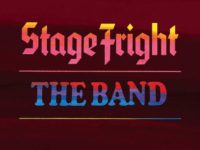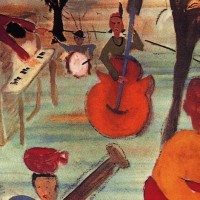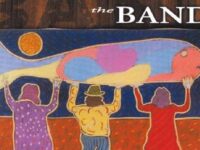After a series of twilit ruminations, and very dire warnings, about the Band’s new rock-star lifestyle late into Stage Fright, perhaps this utterly scarifying parable was all but inevitable.
“Daniel and the Sacred Harp” is the Robert Johnson narrative, but from another, even more mystical time — an Old Testament time. And, this being the Band, it’s presented with a series of twists: Not as a shotgun-shack rattling blues, but as a kind of Appalachian lament, made complete by Rick Danko’s sawing fiddle and a turn on this old-timey pump organ by Garth Hudson. It’s not focused on an old guitar, either, but with something that recalls a dog-eared Deep South songbook from a lost era, The Sacred Harp by B.F. White.
That there is more at stake here than a musician and his soul, of course, is obvious. We hear whispers of a larger innocence lost, something that must have rung true for a generation then leaving the 1960s. Still, the crossroads at which the Band then stood, somewhere between stardom and an abyss, looms over this Robbie Robertson lyric like a purpled storm cloud.
Levon Helm, singing with a heart-splashing openness, plays the role of the narrator — offering, in yet another deft move, the chorus as a parenthetical on either end of this song — while Richard Manuel is the desperate Daniel, willing to do anything for a chance to play the sacred instrument. (He also plays drums, while Helm adds acoustic guitar.) They share a tale of sad inevitability for most bands, as they endure bad management deals, bad choices made at a too-late hour out on the road, inter-group squabbles, so on. They get to be famous, but make no mistake, it doesn’t come free. And, in the end, the Band was no different, away from the hagiography of those sepia-toned early album covers.
“The price that Daniel had paid, he didn’t even know,” Helm cries, as the main character’s fate is sealed. “When he looked to the ground,” Helm adds, “he noticed no shadow did he cast.” Knowing what we know, not just about Manuel’s sad fate but ultimately about the Band itself, that line remains a shattering, goose-pimpled moment.
It wasn’t just that Manuel, though he had a number of important subsequent performances ahead of him, would never write another song after those found on Stage Fright. It was that the Band itself was nearing the end of a sustained period of greatness — and, ultimately, they would never be quite the same again. Somehow, after putting out three brilliant recordings between 1968-70, the Band would manage just three more studio releases through Robertson’s departure in 1977.
- How Deep Cuts on ‘Music From Big Pink’ Underscore the Band’s Triumph - July 31, 2023
- How ‘Islands’ Signaled the Sad End of the Band’s Five-Man Edition - March 15, 2022
- The Band’s ‘Christmas Must Be Tonight’ Remains an Unjustly Overlooked Holiday Classic - December 25, 2016




